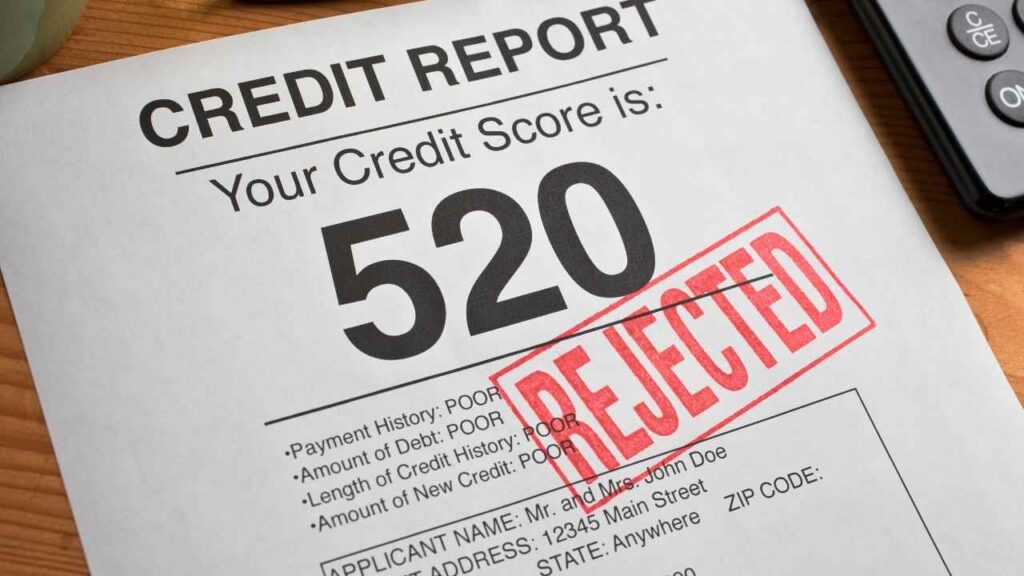Shocked to see a decline in your credit score. Wondering why did my credit score drop, when you haven’t made any big changes? As much as it may seem shocking there are a few things to look out that result in sudden dips in your credit score.
Understanding the U.S. Credit Rating System & How Scores Change
In the United States, the credit is generated based on the credit report that is made and maintained by credit reporting companies (Transunion, Experian etc). Your credit score can also vary according to the scoring model that is used like FICO and Vintage.
Because of this, there are several reasons your score might drop, some common and some surprising.
Ready To Improve Your Financial Standing? Lets get you on board!
Common Reasons Why Your Credit Score Drops
Here are key factors that can lead to a lower score — whether by a few points or a more significant drop .
| Reason | What Happens / Why It Hurts | Notes & Examples |
| High Credit Utilization | If your credit card balances get close to your credit limit, your utilization ratio (balance ÷ limit) rises. High utilization is seen as riskier, and this can lower your score. | Even if you pay off a card later in the month, the lender might have reported a high balance at a certain snapshot time. |
| Late or Missed Payments | Payment history is a heavily weighted factor. A single late payment can ding your score. | If a payment is more than 30 days late and gets reported, it can cause a noticeable drop. |
| Opening New Credit / Hard Inquiries | Applying for new credit triggers a “hard inquiry” that can lower your score temporarily. | Multiple hard inquiries in a short period can amplify the effect. |
| Closing or Paying Off Old Accounts | Closing a credit card (especially an older one) reduces your available credit and may shorten your average account age. | Even paying off an installment loan can lead to a small drop because it removes that account from your active history. |
| Credit Limit Reductions | If a creditor lowers your credit limit, your utilization ratio can increase (because denominator shrinks), hurting your score. | You might not always be notified of the limit change — check account statements. |
| Identity Theft / Unauthorized Accounts | Fraudulent accounts or charges opened in your name can raise balances or add new delinquent accounts, decreasing your score. | Regularly review your credit reports for unfamiliar accounts or activity. |
| Negative Items Falling Off Your Report (“Collection fell off and FICO dropped”) | As derogatory items (collections, late payments, charge-offs) age and are removed (or “fall off”) from your report, the scoring model may re-balance weightings and your score can adjust downward too. | This can seem paradoxical — the bad item is gone, yet the score drops. But the scoring algorithm may re-optimize the weight of remaining accounts. |
| Other Factors — Account Mix, Changes in Credit Behavior | Changes in the types of credit you use (revolving vs installment), new negative tradelines, or altered behavior can shift your score downward. | For example, if you fully paid off an installment loan, your mix has changed (one fewer active installment loan). |

Why Did My Credit Score Drop 20 Points?
Let’s talk specifically about why 20-point drop is relatively large, but not uncommon if multiple changes align:
- high balance was reported.
- late payment was reported.
- hard inquiries were added.
- closed an older credit card or reduced credit limit.
- One or more negative items recently dropped off (causing reweighting).
Ready To Improve Your Financial Standing? Lets get you on board!
“US Government Credit Rating” What Does It Mean Here?
“US government credit rating” is often confused with individual credit scores. But personal credit scores are different from the credit ratings assigned to sovereign nations (like U.S.). In the context of the U.S. credit system, referencing “US credit rating” means the creditworthiness or credit score of U.S. consumers.
What You Can Do: Steps to Recover & Prevent Drops
- Obtain and review your credit reports from TransUnion, Experian, and Equifax and Look for late payments, new accounts, increased balances.
- Dispute errors If you see inaccurate items (late payments, accounts you never opened) and file a dispute with the credit bureau.
- Try to keep your credit card balances low (ideally under 30% of your total).
- Each hard inquiry can chip away your score; so do your rate shopping in a tight window or via soft checks when possible.
- If they have no balances, keeping them open helps your credit history length and available credit.
- Maintain perfect payment history.
- Wait for positive changes to take effect.
In Summary
If you’re wondering “why did my credit score drop?”, it is almost always rooted in changes reported on your credit file, Whether high balances, missed payments, new accounts, or other updates. A 20-point drop may seem alarming, but if you identify the culprit(s) and address them, you can often correct them.

